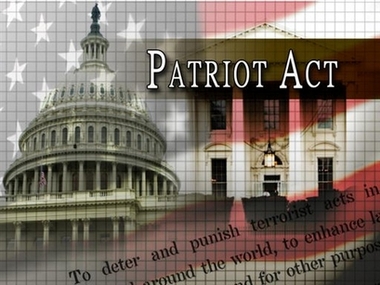FBI criticized for Patriot Act use
(AP)Updated: 2007-03-09 13:33
WASHINGTON - An internal Justice Department report accuses the FBI of underreporting its use of the Patriot Act to force telecommunications and financial firms to turn over customer information in suspected terrorism cases, according to officials familiar with its findings.
"They lost track," said the official who like others interviewed late Thursday spoke on condition of anonymity because the report had not been released.
The errors are outlined by Justice Department Inspector General Glenn A. Fine in an audit to be released on Friday. The audit requirement was added to the Patriot Act by Congress over the objections of the Bush administration.
The FBI in 2005 reported to Congress that its agents had delivered a total of 9,254 national security letters seeking e-mail, telephone or financial information on 3,501 US citizens and legal residents over the previous two years. Fine's report, according to officials, says that number was underreported by 20 percent.
It was unclear late Thursday whether the omissions could be considered a criminal offense. One government official who read the report said it concluded the problems appeared to be unintentional and that FBI agents would probably face administrative sanctions instead of criminal charges.
The FBI has taken steps to correct some of the problems, the official said.
The Justice Department, already facing congressional criticism over its firing of eight US attorneys, began notifying lawmakers of the audit's damning contents late Thursday. Spokesmen at the Justice Department and FBI declined to immediately comment on the findings.
FBI Director Robert Mueller was to brief reporters on the audit Friday morning, and Attorney General Alberto Gonzales was expected to answer questions about it at a privacy rights event in Washington several hours later.
Sen. Charles E. Schumer, a member of the Senate Judiciary Committee that oversees the FBI, called the reported findings "a profoundly disturbing breach of public trust."
"Somebody has a lot of explaining to do," said Schumer, D-N.Y.
Fine's audit also says the FBI failed to send follow-up subpoenas to telecommunications firms that were told to expect them, the officials said.
Those cases involved so-called exigent letters to alert the firms that subpoenas would be issued shortly to gather more information, the officials said. But in many examples, the subpoenas were never sent, the officials said.
The FBI has since caught up with those omissions, either with national security letters or subpoenas, one official said.
National security letters have been the subject of legal battles in two federal courts because recipients were barred from telling anyone about them.
The American Civil Liberties Union sued the Bush administration over what the watchdog group described as the security letter's gag on free speech.
Last May, a federal appeals judge in New York warned that government's ability to force companies to turn over information about its customers and keep quiet about it was probably unconstitutional.
|
||
|
||
|
|

